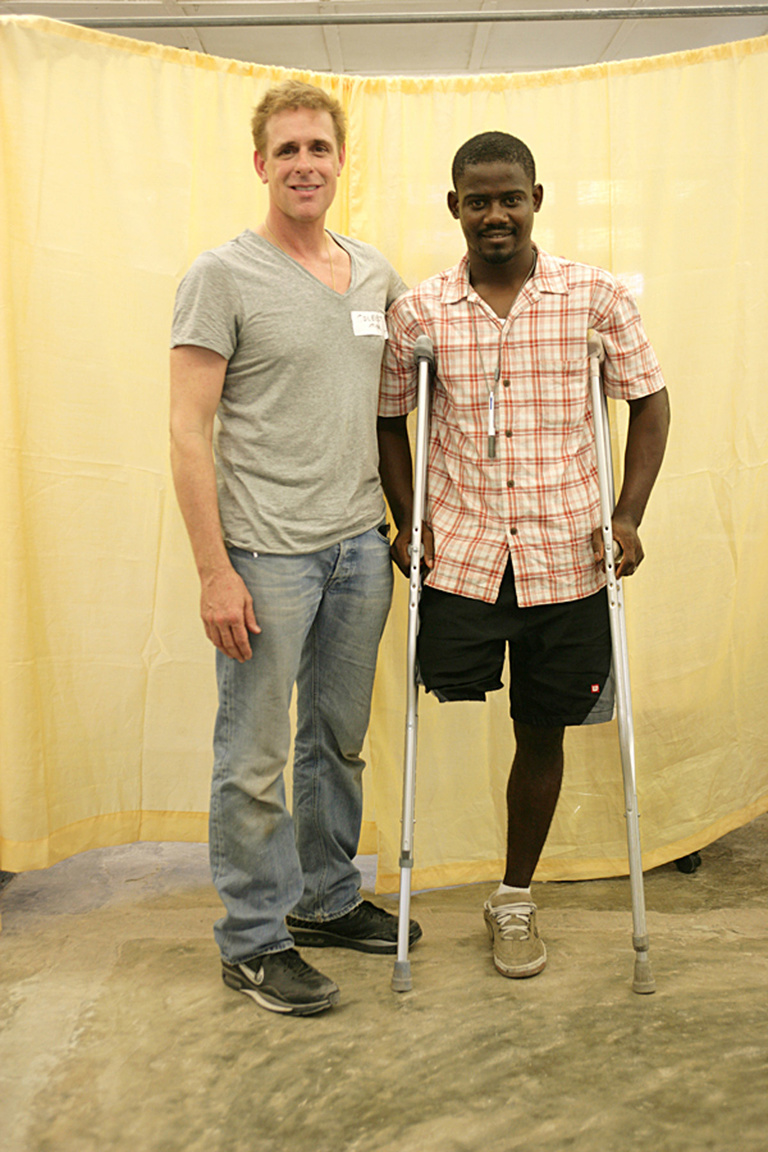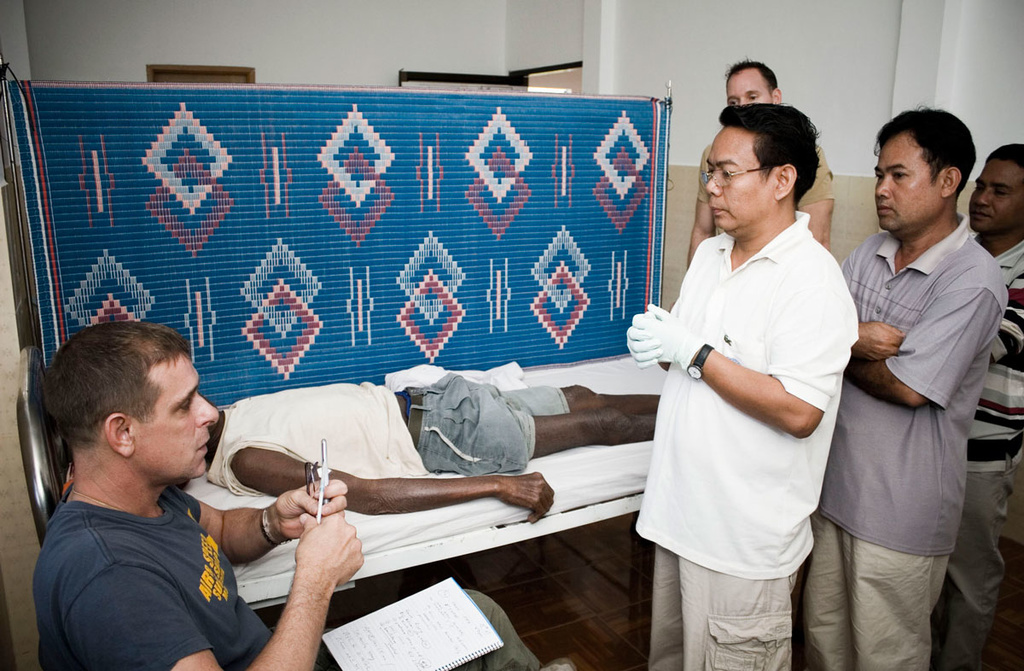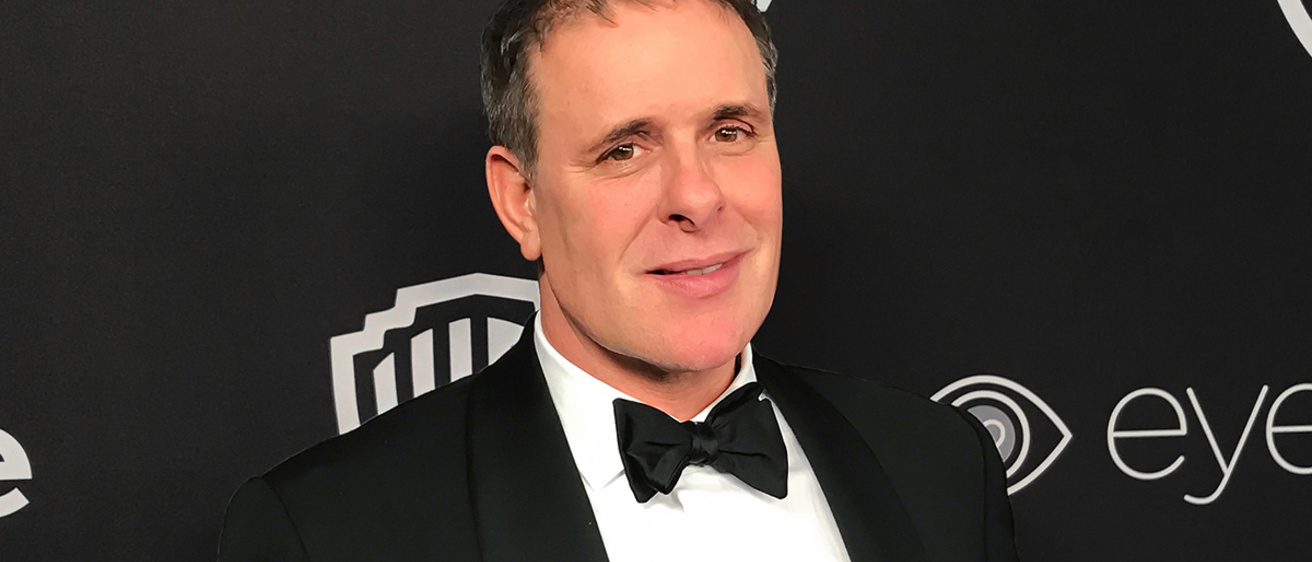University of Iowa alumnus David Colbert is known as a dermatologist to the stars. The title partly stems from the impressive celebrity clientele of his practice, the New York Dermatology Group (NYDG), some of whom, like Naomi Watts, Rachel Weisz, and Michelle Williams, count themselves among his friends.
Colbert, who earned a BA from the UI in 1981, also has consulted on set with celebrities such as Jennifer Lawrence for her transformation into the blue-bodied character Mystique for her three X-Men performances. NYDG’s treatments have become so popular among actors and actresses that Colbert sets up a special clinic in Los Angeles for awards season, culminating with Sunday’s Academy Awards.
Even Colbert’s philanthropic efforts are tinged with red-carpet glitter. He partnered with actress and activist Angelina Jolie to bring a dermatology clinic to disadvantaged regions of Cambodia and hosted a fundraiser for victims of the 2010 Haiti earthquake on rock star Mick Jagger’s roof.

However, Colbert laughs at the suggestion that his life is star-studded and luxurious.
“A lot of real stars will tell you that’s hilarious,” he says. “My life is not that. That is a very lopsided view of my life.”
Colbert typically dresses in a T-shirt and jeans. In the mornings he draws for an hour, then does yoga or physical therapy to keep himself in surfing shape. To get around Manhattan, he eschews taxis and instead rides his bike. And as much as possible, he flies JetBlue. His one indulgence, he says, is occasionally flying JetBlue Mint.
Like most successful people, Colbert’s days also are very busy. He recently launched a new skin-care line, named NYDG after his practice, and because February is awards season, his services are in high demand. However, the softness of his voice betrays none of those stressors. Colbert is open, frank, and sometimes vulnerable—a mixture that makes him charming.
Colbert was born in Dubuque, Iowa, and grew up with six siblings. His older sister attended the UI before he did, as did his parents, which, along with the UI’s affordable tuition, contributed to his decision to transfer from St. Olaf College in Minnesota after his second year there.
Like many undergraduates, Colbert had a sense of what he wanted to do with his life, but he wasn’t certain.
“I was a zoology major so I could keep the door open to go into medical or veterinary school,” he says. “But then I wanted to have more of a well-rounded education, so I also majored in Romance languages and minored in dance.”
That decision “opened up so many worlds for me,” he says, not only because his multi-lingual status helps him do business abroad, but also because while studying ballet he met former Joffrey Ballet principal dancer Francoise Martinet.
“I think meeting her changed my life,” Colbert says. “I don’t think I’d be the person I am today if I hadn’t met Francoise Martinet.”
Martinet moved to Iowa City to teach at the UI after 10 years of dancing with the Joffrey in New York City and several years teaching there as well. She taught at the UI for 20 years, and her retirement in 1998 spurred an outpouring of well wishes and testimonials from the many students and colleagues whose lives she touched.
After graduating from the UI, Colbert moved to New York City to study dance for two years with the Joffrey as Martinet had done.
“In my mind, I wanted adventure—I knew that for sure,” Colbert says. “And I knew that eventually I would probably go back to college when the adventure was over and study medicine.”
After two years in New York City, Colbert applied to medical schools. When medical schools in the U.S. turned him down, his study of Romance languages again helped him, and he entered medical school in France at La Faculté Libre de Médecine.
He recalls his time there as academically rigorous. An anatomy class at La Faculté didn’t offer multiple-choice answers—tests required you to draw the anatomy from memory.
After two years, Colbert transferred back to the U.S. to complete his degree. While studying for his board exams, he worked at a Chanel laboratory in Paris, then spent several years as an emergency room doctor in New York City before starting his own dermatology practice.
Looking back, Colbert counts his time making a difference in the lives of Haitian survivors of the 2010 earthquake among the highlights of his career. The earthquake left hundreds of thousands in need of basic amenities and health care. He says he was drawn to help in part because it reconnected him to the hands-on, life-saving, and challenging work he did as an emergency room doctor.
“Wanting to help people comes naturally with the territory of being a doctor,” he says. “Being a dermatologist, you do a lot of cosmetic work, which is in one way less fulfilling than field work. I really miss that about medicine.”

Colbert volunteered at a clinic in Haiti that provided wound care after amputation, and he started the NYDG Foundation to provide those patients and other amputees with prosthetics so they could maintain their livelihoods.
Since then, the NYDG Foundation has continued to provide clinics and other support at various locales around the world, such as a foster home in Peru for children with HIV, a scholarship to a dermatologist in training from South Africa, and a partnership with the University of Cape Town to bring skin-health clinics to peri-urban Cape Town.
With a percentage of each sale from his new skin-care line, NYDG, going to the NYDG Foundation, the organization is poised to expand, though the foundation employs the philosophy that smaller is better.
Describing the ripple effect small efforts can have on communities in need, Colbert says, “We live in the wealthiest nation in the world. All it takes is one trip to Haiti, the world’s third poorest country, and you see that you don’t need to go far to make a difference.”
The tasks Colbert faces today frequently remind him of the multidisciplinary studies he pursued at the UI. Even his trips around the world for business and philanthropy reflect an ongoing adventurous spirit.
Upon reflecting on the level of his success, Colbert says he never expected any of it.
“Things happen in a fortuitous or serendipitous way,” he says.
